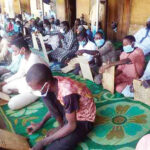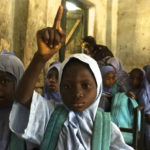With the increase in gender-based violence (GBV) cases in the Federal Capital Territory (FCT), an age-long tradition of banishing perpetrators of rape in Galadimawa community is helping to address the menace in the area.
Galadimawa, in Abuja Municipal Area Council (AMAC), has a population of over 5,000 people. The residents of the community are predominantly Gbagyi.
The chief of the community, His Royal Highness, Tanko M. Zhimiko, said the tradition has helped instil fear in male chauvinists.
“We have a tradition and law that anyone engaged in such an act is banished from the community. Our forefathers regarded rape as a taboo that is why they put that tradition in place.
“The banishment is a curse that could affect the person’s family from generation to generation. So the law has been instilling fear in our people; to the point that they don’t even think of committing such an act,” he said.
He said, as a result, no case of rape has been reported in the community since he ascended the throne.
The chief said the community has also been witnessing a reduction in other forms of gender-based violence incidents because of some cultural norms, sensitization and other governance structures in the community.
He said leaders of villages in his domain report cases of GBV to his council which in turn transmits it to him for further action. He added that criminal cases are often handed over to the police.
Zhimiko said the community also utilizes churches and mosques in sensitizing people against gender-based violence.
He added that cooperation from other ethnic groups living in the community has also helped in checkmating violence against women and girls.
Asabe Mohammed, a female member of the traditional council said there used to be pockets of domestic violence in the community but that civilization and sensitization programmes have reduced them drastically.
She said the community also boasts of many other friendly traditions that discourage violence against women.
“The traditions are making such violence stop because everyone knows that it wouldn’t be taken kindly in the community. So I am happy with the efforts towards protecting women.
“Also, whenever, there is a council meeting, the men enlighten the female members who then enlighten women in the community who also enlighten their family members,” she added.
John Gbegbe, chairman of the Surveillance Committee on Violence Against Women and Girls in the community, said the over 300 year-community has traditions that view women as helpers and don’t allow them to be maltreated.
“We are even encouraging them to join politics so that they can sit with their male counterparts to take decisions.
“We don’t joke with the indigenous banishment tradition on rape. Once one is caught, he is banished. Even a man having an affair with another’s man’s wife in this community is a serious taboo.
The person has to appease the gods, and it affects his lineage. So we don’t have such issues in this community because of the stringent customs.”
He said the traditional council also assists the surveillance committee through stakeholders meetings involving tribal and religious leaders who enlighten their congregations.
While saying law enforcement officers have also been helpful against GBV in the community, he advocated for the implementation of such traditions in other communities to curb the menace of GBV.
The director, National Orientation Agency, FCT, Tanko Mary, said poor commitment by security agencies and stigmatization of survivors has been a major challenge in the fight against gender-based violence.
Speaking during the training of Spotlight Initiative Network of Journalists on Ethical Reporting and Advocacy to Eliminate Violence Against Women and Girls in the FCT, she said “the rise of violence against women and girls calls for a collective action to ensure that the cases are reduced.”
The training programme was organised by the United Nations Children Fund (UNICEF) in collaboration with the Child Rights Information Bureau (CRIB) of the Federal Ministry of Information and Culture
The Protection Officer of UNICEF, Tochie Odele, said one in four women and girls has experienced sexual violence, adding that the situation became worse following the coronavirus lockdown.
“It is important to note that violence is rarely an isolated incident. The majority of children surveyed experienced violence in their homes and familiar environments.
“Women and girls with disabilities are twice as likely to experience violence of any form,” she said.
The Desk Officer of the Federal Capital Territory (FCT) Sexual and Gender-Based Violence Response, Mrs Ike Ngozi, said 444 cases of sexual offences were recorded in the FCT this year but only one conviction was secured.
She called for the establishment of special courts to hasten the trial of such cases.

 Join Daily Trust WhatsApp Community For Quick Access To News and Happenings Around You.
Join Daily Trust WhatsApp Community For Quick Access To News and Happenings Around You.

